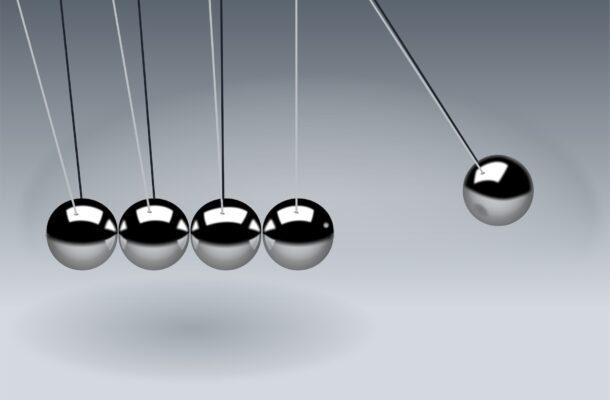Uncertain premises

During my 83 years of life I have found that many of the ‘facts’ presented have been found to be unreliable.
Carbon dating was based on a faulty understanding of ancient Egyptian history due to the fact that some pharaohs changed their names, so the sstem had to be recalibrated; Australian aboriginals were thought to have arrived here 25,000 years ago instead of the current theory of 45 – 50,000; the atom was the smallest possible piece of matter; thunder and lightening were caused by clouds crashing into each other; men and dinosaurs existed side by side; neanderthals were stupid, brutish creatures, and many more.
Quantum science now tells us that matter (and anti-matter) consists of many smaller particles and that matter as we know it is only a small part of cosmic reality. It seems that the more we know the more we find we don’t know.
Scientists are trained to be observant and accurate but we all have our biases and pride. Sometimes these tend to override their scruples to the extent of seeing only what they expect. This is not to say that they deliberately misrepresent their findings but that they have their blind spots like the rest of us. This is one reason that so many of their discoveries are still termed theories even after everyone accepts them as facts.
The sceptic will claim that if there is an external world, the things in it are observable because they exist, and not the other way around: that existence isn’t the same thing as observability. And although we get the idea of dreams and hallucinations from cases where we think we can observe the contrast between our experiences and reality, it certainly seems as if the same idea can be extended to cases where the reality is not observable.
Scepticism is a method of intellectual caution, suspended judgment, and pursuing knowledge through systematic doubt and continual testing. Whilst it is probably accepted that we do not believe advertising ‘executives’, used car salesmen or politicians, as humans we have a need to seek out an understanding of the world around us, not only because we are naturally inquisitive but also for our own long term safety and security.
Nonetheless, the knowledge we gain must rest on observation, measurement, and reasoning, confirmed by independent observers. The wilder and more ridiculous something is, however, the firmer and more solid the evidence will have to be.
However, the function of the lawyer is to preserve a sceptical relativism in a society hell-bent for absolutes. The worse the society, the more law there will be. In Hell there will be nothing but law and due process will be meticulously observed. We therefore need to be selective with our facts as we know them whilst remaining open to reinterpretation of the overall dynamics of the situation at hand.
Our knowledge is improving day by day and therefore our understanding of our environment and our effect on it. Scientists are delving deeper into the unknown with better and more accurate tools. They are finding that the universe is far more complex than we ever thought – even the formation of elements heavier than iron which was judged to be the product of the demise of massive stars is now being reconsidered with the discovery of neutron stars.
However, back on Earth, science is still confused about the speed of melt in the Antarctic, the effect of sea temperature on Australia’s climate, the damage plastic pollution is causing world-wide and the cause of large scale fish deaths in various countries.
We are beginning to rely on artificial intelligence to solve our problems forgetting that these machines themselves rely on the accuracy of the data available to them which we ourselves have produced. What appears to be accurate knowledge today could quite easily be shown to be a miscalculation tomorrow.

Alan Stevenson spent four years in the Royal Australian Navy; four years at a seminary in Brisbane and the rest of his life in computers as an operator, programmer and systems analyst. His interests include popular science, travel, philosophy and writing for Open Forum.







